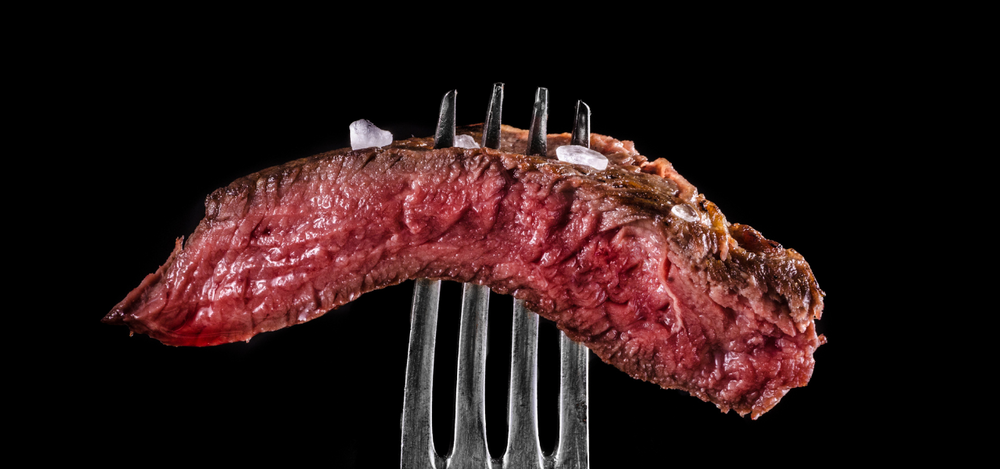The Not-So-Hidden Dangers of the Carnivore Diet

The world of diet trends is ever-evolving, and one of the latest to have gained traction is the carnivore diet. When it burst onto the scene it came with a significant amount of cache given that its greatest proponent was a practicing physician, Dr. Paul Saladino, a Board Certified Psychiatrist.
This extreme regimen - which involves eating only animal products - promises rapid weight loss and other health benefits. Saladino ate grass fed beef and organ meat exclusively for about 5 years. However, while it may offer some short-term perks, the potential long-term risks and uncertainties associated with such a restrictive eating plan are significant and concerning.
Although multiple proponents remain, ultimately, even Saladino abandoned the diet.
What is the Carnivore Diet?
The carnivore diet is as straightforward as it is restrictive – it’s when you consume only meat, fish, eggs, and some dairy products. This means completely cutting out all plant-based foods, including vegetables, fruits, grains, legumes, nuts, and seeds. Unlike the ketogenic diet, which limits but still includes some carbohydrates, the carnivore diet aims to eliminate them entirely.
Advocates of the diet claim it can help with weight loss, stabilize mood, and improve blood sugar levels. Saladino claimed his meat-only diet also cured him of his asthma and eczema. However, after 5 years of strict adherence, even Saladino quit this eating approach when his testosterone levels tanked and he developed sleep issues and muscle aches. Apparently, claims of positive effects are often overshadowed by the real and negative consequences of an all-meat diet.
Buyer beware.
The Importance of Carbohydrates
Carbohydrates are frequently demonized in many diet circles as toxic and responsible for everything from obesity to cancer to cognitive decline. What the critics won’t tell you - or simply don’t understand - is that carbohydrate quality dictates health impact. In addition, besides supplying energy efficiently, carbohydrates are essential for delivering vital micronutrients, antioxidants and fiber.
When consumed, carbohydrates are converted into glucose, which the body uses for fuel. In the absence of carbs, the body turns to fat and protein for energy. While this might sound beneficial (especially the fat part), and is routinely touted as the rationale for following a low carb diet, it can come with various health issues.
Risks Associated with the Carnivore Diet
Fiber Deficiency: Without plant-based foods, fiber intake drops to zero. This can cause constipation and other digestive problems. Fiber is central to maintaining a healthy digestive system and plays an essential role in lowering cholesterol levels.
Nutritional Gaps: By excluding entire food groups, you miss out on essential nutrients found in fruits, vegetables, and grains. This can result in deficiencies in vitamins and minerals, such as vitamin C, vitamin E, and folate, which are vital for various bodily functions.
Increased Chronic Disease Risk: The high intake of saturated fats in the carnivore diet can raise levels of LDL cholesterol, increasing the risk of heart disease and stroke. Additionally, processed meats often consumed on this diet are linked to certain cancers, while the accompanying high sodium intake can lead to kidney problems and elevated blood pressure readings.
Worsening of Existing Health Conditions: For individuals with conditions like high blood pressure, high cholesterol, or a history of cardiovascular disease, the carnivore diet can worsen their health issues. High levels of protein and fat can also be detrimental to those with digestive disorders.
In short, while the carnivore diet might promise quick weight loss and other short-term benefits, the potential long-term health risks and unknown consequences make it a truly precarious choice. When push came to shove, even its biggest proponent moved on.
Back to Carbohydrates
As I mentioned above, it’s not carbohydrates that are bad for you. It’s highly processed carbs that are the problem. It’s not even sugar that’s bad for you. It’s added sugar that is responsible for all the ill effects. An apple and a handful of gummy bears might have the same total sugar content - but it’s all intrinsic for the apple and all added for the gummy bears. And the biochemical effects of the same sugar content inside our bodies coming from the apple or coming from those candies could not be further apart.
In the end, a balanced diet that includes a variety of food groups is what’s essential for maintaining good health. Incorporating healthy carbohydrates, lean proteins, healthy fats and a range of fruits and vegetables ensures that your body receives the necessary nutrients without the risks associated with extreme dietary restrictions.
Sustainable, long-term health is best achieved through balanced, moderate eating habits rather than extreme diets.
Eat food. Not too much. Mostly plants.
It just never gets old.

Tested & Proven Results.
- Cardiologist formulated
- Supported by over 500 publications
- Clinically-proven, in a double-blind randomized trial with Mayo Clinic and The University of Manitoba
80% of participants lowered their cholesterol in just 30 days. With just two servings per day, Step One Foods offers a proven-effective way to naturally lower LDL (bad) cholesterol.
Get heart health tips and articles like this, delivered right to your email.
New articles every week.
You may also like...

Spring Into Heart Health: The Best Seasonal Foods to Eat Now

You don’t need to avoid foods with cholesterol…except for these



